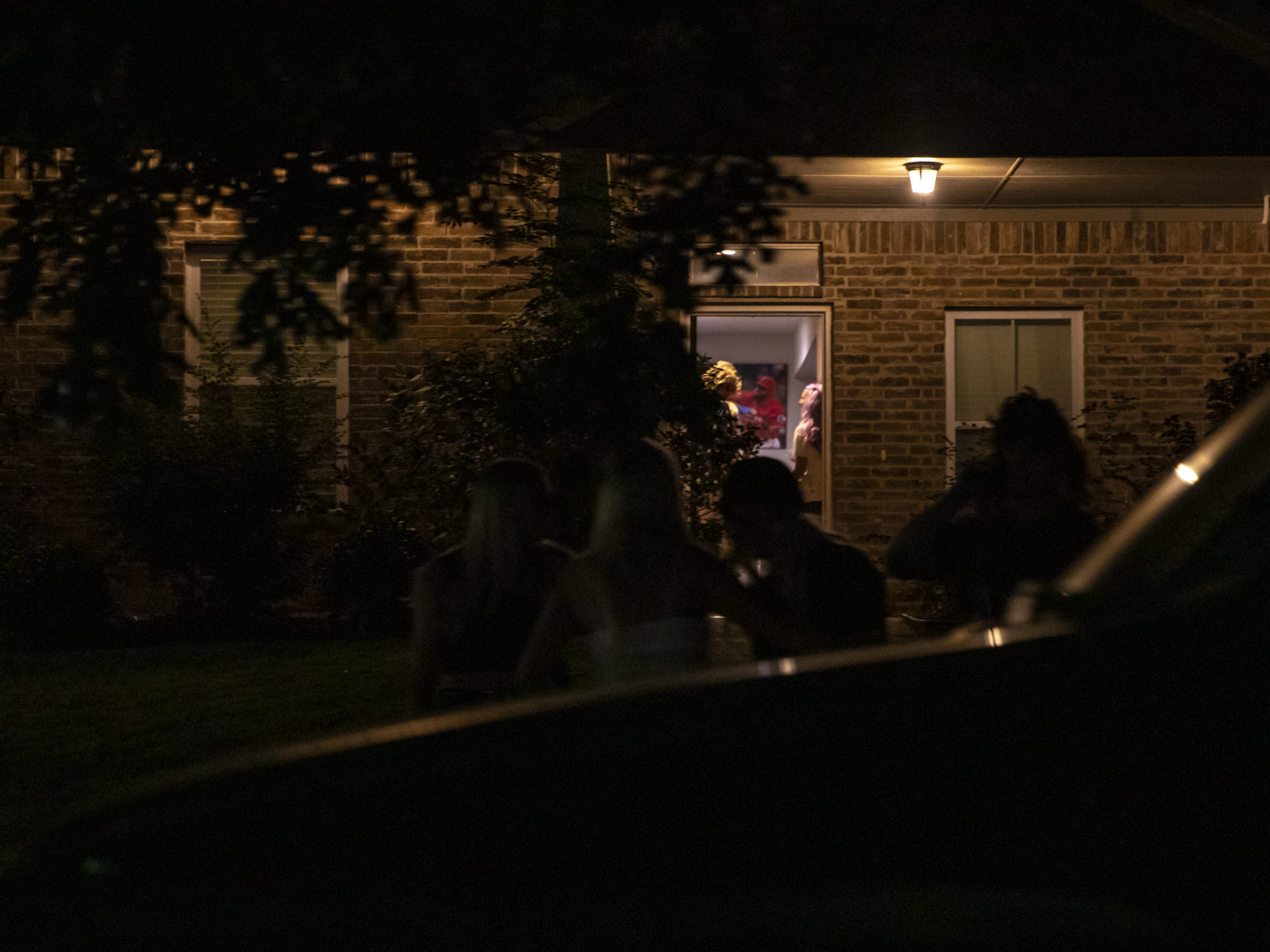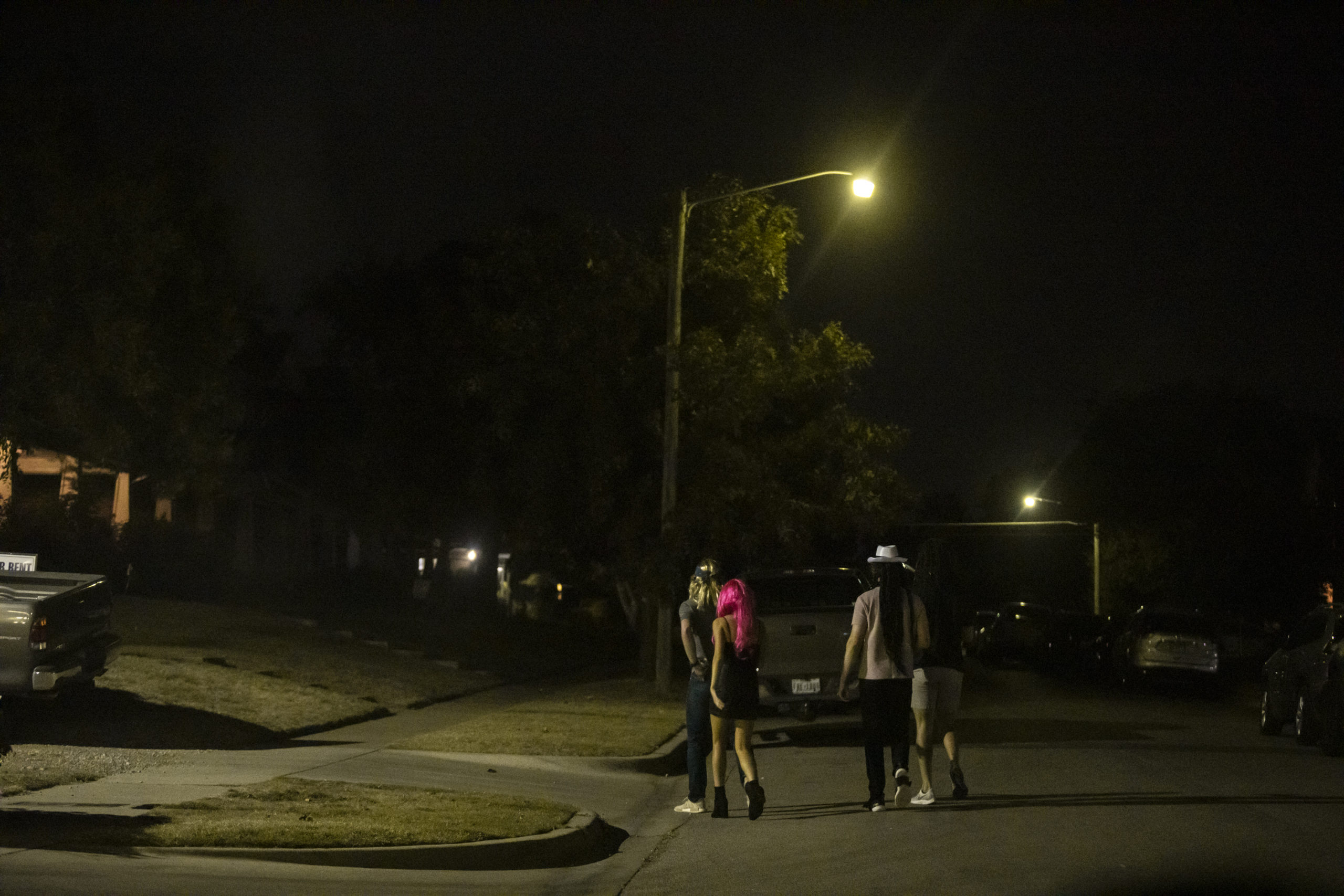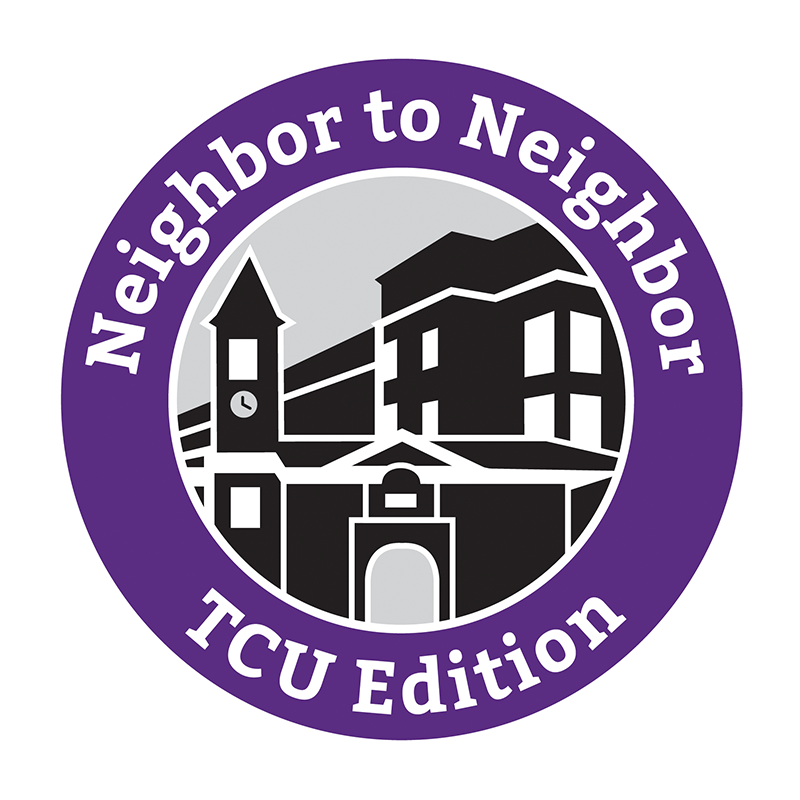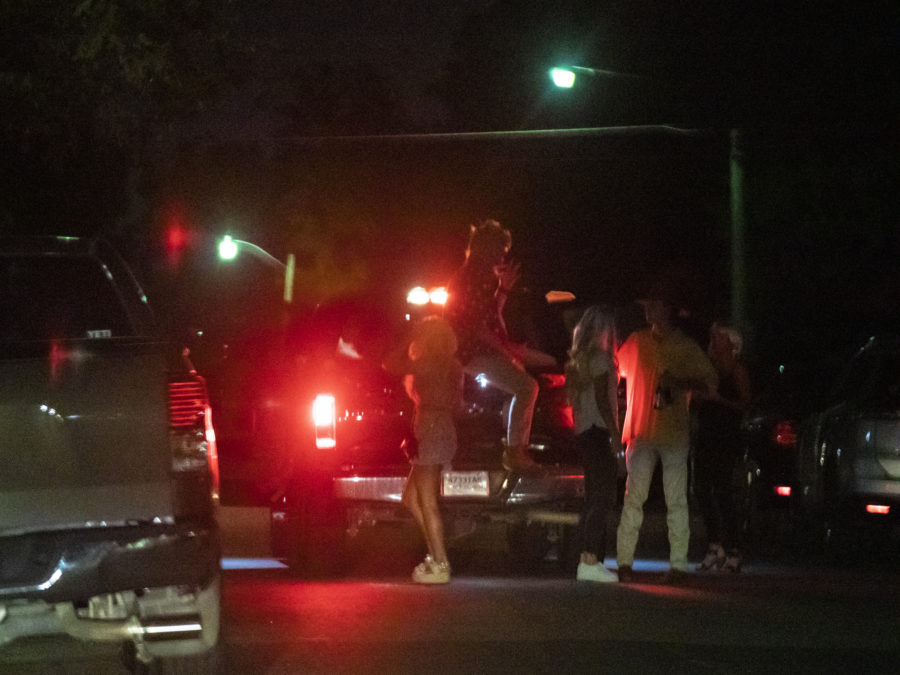Some TCU students had a really good time during syllabus week – maybe too good of a time.
Fort Worth police were called out 30 times to answer noise complaints between Aug. 23 and Sept. 1. Calls came at all times of the day.
The complaints have continued through the semester and Fort Worth police are now warning they will ticket or arrest people who host parties that “cross the line.”
To date, five parties this academic year have ended with noise complaint citations from Fort Worth police and three ended in arrest.
Michael Russel, the dean of campus life, warned of the consequences in an email to off campus students that noted the semester was off to an “inauspicious start.”
“These calls are fairly routine and not a significant nuisance,” said Sgt. Chris Daniels of the Fort Worth Police Department.
Fort Worth prohibits “unreasonable” or “excessive noise,” like loud music or loud conversations late at night that could disrupt the neighborhood’s peace.
In 2012, the city set a residential decibel limit of 70 during the day – the equivalent of running a vacuum cleaner; at night the decibel level is 60 – equal to a normal conversation.
[documentcloud url=”http://www.documentcloud.org/documents/6453909-Fort-Worth-Noise-Ordinance.html” responsive=true]
Turn it down
The earliest complaint about noise during syllabus week was at 4:32 p.m. on Aug. 30 at the corner of West Devitt Street and Sandage Avenue – police returned just over an hour later.
“The vast majority of these calls are resolved prior to the police arriving,” Daniels said. “However, those that are still on-going are usually completed with a quick warning, unless it becomes a frequent issue.”
Things were also popping late at night. A complaint was made at 1:10 a.m. on Aug. 31 about revelry in the 3200
One party during syllabus week ended in disorderly conduct citations. This party, in the 3500 block of Rogers Avenue, had “approximately 200 people in the backyard” and “many of the
One of the residents, who asked to remain anonymous to protect his privacy, said he won’t host a party again because “it’s not worth the hassle.”
“I made a pretty considerate effort to go out into the street to make sure it wasn’t too loud, yet my neighbors still called,” he said. “I guess it might’ve been.”
TCU student

When police arrived at the house, the student said they told them to shut the party down.
“That’s a two-fold issue,” he said. “Maybe college students living on my street aren’t as considerate as they should be and maybe the neighbors on my street that are not in college are not as understanding as they should be.”
Between Sept. 3-13, an additional 12 complaints including noise, public intoxication and underage consumption were issued to parties in TCU neighborhoods.
Each of the calls
“These calls are designated as one of our lowest priority; therefore, we are unable to respond until the higher priority calls are completed,” Daniels said. “Once there is some downtime, an officer can respond and finish the call fairly quickly. If the call location becomes a continual problem, our Neighborhood Police Officers are made aware and they typically intervene when our patrol officers are tied up.”
Saturday, Sept. 7 was a busy night for police patrolling TCU neighborhoods.
- TCU police responded to a noise complaint in the 3600
block of Rogers Avenue at 3:04 p.m. But “as soon as they left they turned the music up even louder,” a Fort Worth police officer wrote in police records.
According to police reports when a neighbor walked over to the party and asked the music to be turned down a second time she was bombarded with curse words and called derogatory names.
- A party in the 3500 block of Plymouth Avenue was shut down around 11 p.m. by Fort Worth police after a neighbor complained he “could hear how loud the music was and it was keeping his baby awake.”
- Fort Worth police also shut down a party in neighboring backyards in the 3500 block of Kell Street. The fence in between the homes was taken down and the police reported they heard the music before they arrived.
On Sept. 11, a resident in the 4000
A loud start
Russel said complaints are noise, underage drinking and public intoxication are generally are high at the beginning of the school year but simmer down over time. He said the email was sent because the complaints this year were ongoing.
The police are trying to work with students, he said. However, failure to obey officers could result in an arrest.
“It is my understanding that every police officer wants to be able to work with people and give them warning, if appropriate,” he said. “When the conditions are such that warnings are not working, they move to a stricter enforcement approach.”

Russel said some students have been “rude and vile” to their neighbors.
“The house you rent for a year could be next door to a family with young children or retired neighbors who want to live peacefully,” Russel wrote in the email. “Anything you can do to demonstrate the strong character of TCU students goes a long way.”
Neighbor to Neighbor
TCU’s enrollment grew by about 1,400 students between 2011 and 2018. Despite the construction of several new dorms about half of all undergraduates live off campus.
The off-campus growth has caused tensions between TCU students and their neighbors. As students began to move
In addition to the noise ordinance, Fort Worth created an overlay district for the neighborhoods around TCU that placed restrictions on the numbers of students who can rent a single family home.
Fort Worth also created the Neighbor to Neighbor program in 2015 an effort to ease tensions.
Zadeh said the best way to resolve these issues was through a program that students, student government, university officials and residents in nearby neighborhoods participated in.
The program encourages students to meet with their neighbors to build a rapport with them.
“For the most part, in the neighborhoods that use it actively and engage in it actively, overall complaints and concerns have gone down,” Zadeh said.

Dana St. Germain, a member of the Bluebonnet Hills Neighborhood Association, said the program has done a good job building a relationship between neighbors and students.
“We knew when we moved into a house this close to campus that it came with it’s
Cathy Ryan, vice president of the Bluebonnet Hills Neighborhood Association, said parties have been more of a concern in years past than this year.
Ryan said neighborhood officers of Bluebonnet Hills meet with students who host parties to discuss behavior expectations.
“Within our neighborhood association, we encourage home owners to introduce themselves to new TCU students who select to live within our neighborhood,” Ryan said. “Our hope is that by establishing a relationship this will result in less issues of concert.”
However, for those whose parties get out of line frequently, Zadeh said the threat of arresting students is the right way to handle the situation.
“I think we do a whole lot of outreach ahead of time and our neighborhood patrol officers attend meetings and the meetings with the university and the student government all ahead of time to get information about proper behavior so there is full notice about what’s acceptable and what’s not acceptable,” Zadeh said.
The issue is not just a city issue – it’s also an issue
Zadeh meets quarterly with members of the community, student government representatives, neighborhood patrol officers and representatives from some of the multi-family housing around TCU meet to discuss successes and issues that have arisen since the last meeting and how to resolve them.
For example, Hudson Trent, the former SGA vice president of external affairs, proposed in a Neighbor to Neighbor meeting in 2017 to provide extra bins for students to place their trash on campus instead of disposing of it illegally in their neighborhoods.
“We are communicating with Fort Worth PD and TCU administration to increase understanding for all invested group,” Josh Witkop, the current SGA president, said. “We hope to move forward collaboratively addressing both cultural and concrete aspects of the topic.”










